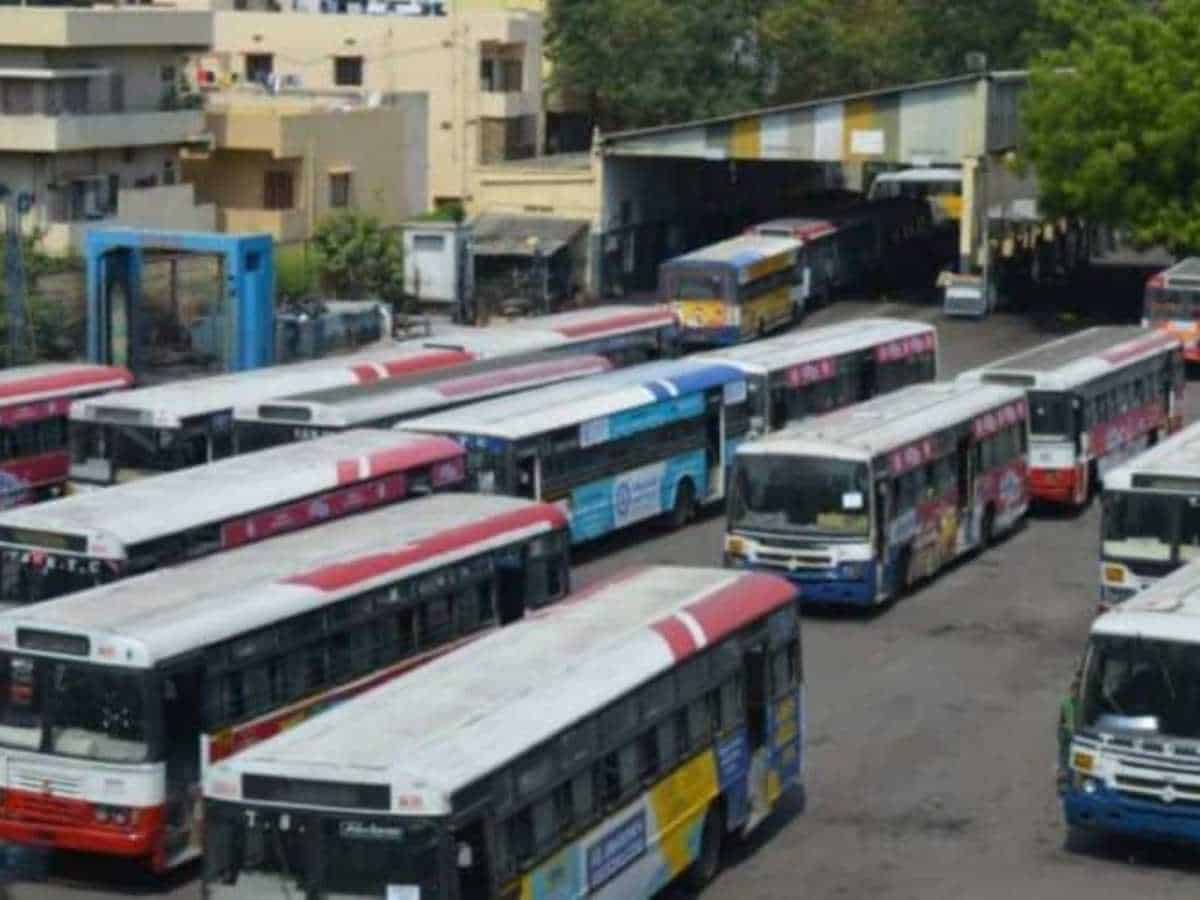Syed Hurairah
Hyderabad: The ride for the Telangana State Road Transport Corporation has been rough. First, it was the strike called by all of its trade unions which demanded better working conditions and a conversion of the corporation into a full-fledged government department. Now, with the COVID-19 pandemic and the subsequent lockdown, the state transport undertaking (STU) is facing massive losses in revenue.
The TSRTC used to generate revenues of between Rs. 10 crores and Rs. 13 crores per day, depending on the ridership, and still sustain losses. However, with its 10,000 buses going off the roads across the state ever since the lockdown was enforced, the revenue stopped altogether. Moreover, with bus services within districts and between districts resuming, the STU is facing an occupancy ratio problem.
Services were resumed on May 19. However, services within the Greater Hyderabad Zone – comprising Hyderabad district and the IT Corridor – continue to remain suspended. The revenue making inter-state services too remain temporarily closed.
“The occupancy was very low on the first day, around 30%. This increased to around 40% around 20 days later. Now, it is roughly 50%,” a TSRTC official said.
Despite this slow, but steady increase, the TSRTC continues to face problems in generating revenue. The problem is two-fold: firstly, the occupancy continues to remain low, and secondly, diesel prices continue to skyrocket.
“The biggest problem for the TSRTC has been diesel prices. For many years, diesel prices have increased and the fare was hardly increased. In the past month, the price has increased by around Rs. 10. This is a huge problem for revenue generation. When you talk about revenue generation, it is around Rs. 4 crore per day now and the number of kilometres run per day is half of the 36 lakh km/day which was the norm,” a member of a trade union said.
He explained the problem: the earning per kilometre will decrease due to the increase in fuel prices. “We can say that the running cost per kilometre would increase by Rs. 2. This is also very high and this means earnings will decrease. The cost of diesel which will be procured per month will increase by several crores. The only way to offset this is to increase the price of tickets. But this is a political decision and will not be done in the near future,” an analyst said. He also explained that the government should now look into the unions’ demand of bringing diesel under the Goods and Services Tax and also give exemptions under the MV Act.

